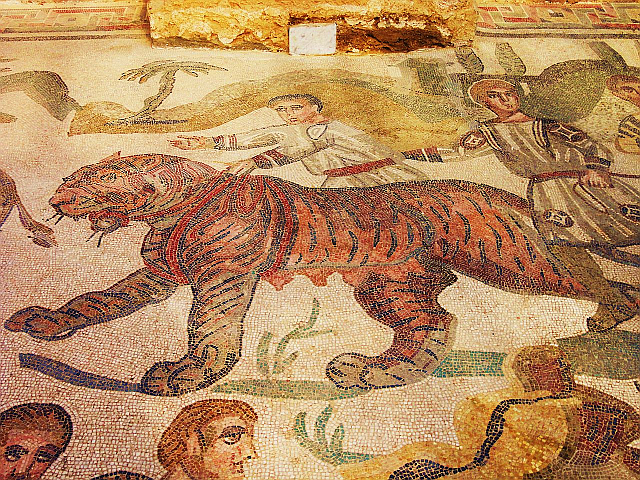Speaking of curses and charmed language: 1,700 years ago, a tablet in Jerusalem called upon a motley assortment of gods to curse Iennyes:
A lead curse tablet, dating back around 1,700 years and likely written by a magician, has been discovered in a collapsed Roman mansion in Jerusalem, archaeologists report.
The mansion, which is being excavated by the Israel Antiquities Authority in the Givati Parking Lot, is located in what is known as the "City of David," an area that holds at least 6,000 years of human occupation. The mansion itself covers at least 2,000 square meters (about half an acre) and contains two large open courtyards adjacent to each other. It was in use between the late third century and A.D. 363, when it was destroyed in a series of earthquakes on May 18 or 19.
The text is written in Greek and, in it a woman named Kyrilla invokes the names of six gods to cast a curse on a man named Iennys, apparently over a legal case. [See Photos of the Ancient Curse Tablet]
"I strike and strike down and nail down the tongue, the eyes, the wrath, the ire, the anger, the procrastination, the opposition of Iennys," part of the curse reads in translation. Kyrilla asks the gods to ensure that "he in no way oppose, so that he say or perform nothing adverse to Kyrilla … but rather that Iennys, whom the womb bore, be subject to her…"
To obtain her goal Kyrilla combined elements from four religions, Robert Walter Daniel, of the Institut für Altertumskunde at the University of Cologne, told LiveScience in an email. Of six gods invoked, four of them are Greek (Hermes, Persephone, Pluto and Hecate), one is Babylonian (Ereschigal) and one, Abrasax, is Gnostic, a religion connected to early Christianity. Additionally, the text contains magic words such as "Iaoth" that have a Hebrew/Judaism origin.





